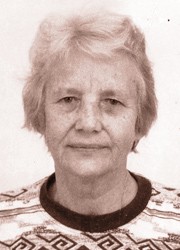Johanna Döbereiner facts for kids
Quick facts for kids
Johanna Döbereiner
|
|
|---|---|
 |
|
| Born |
Johanna Liesbeth Kubelka
28 November 1924 |
| Died | 5 October 2000 (aged 75) Seropédica, Brazil
|
| Nationality | Brazilian |
| Alma mater | Ludwig Maximilian University of Munich |
| Spouse(s) | Jürgen Döbereiner |
| Parent(s) | Paul Kubelka (father) |
| Awards | UNESCO Science Prize (1989) Brazilian Order of Scientific Merit Premio México de Ciencia y Tecnología (1992) |
Johanna Liesbeth Kubelka Döbereiner (born November 28, 1924 – died October 5, 2000) was a famous Brazilian scientist. She was an agronomist, which means she studied how to make farming better. Johanna was a pioneer in the field of soil biology, looking at how tiny living things in the soil help plants grow.
Contents
Early Life and Education
Johanna Döbereiner was born in a city called Ústí nad Labem. This city was in Czechoslovakia when she was born, but it's now part of the Czech Republic. Her family was from a German-speaking area.
She went to university at the Ludwig Maximilian University of Munich in Germany. After finishing her studies, she moved to Brazil. She became a Brazilian citizen in 1956.
Amazing Discoveries in Soil
Johanna Döbereiner's early work focused on tiny living things called bacteria. She studied bacteria like Azospirillum. She wanted to find out how these bacteria could help Brazilian soil.
Later, she made a huge difference in how Brazil grows soybeans. Soybeans are a very important crop. Johanna encouraged farmers to use soybean plants that could get their own food from the air. This process is called biological nitrogen fixation.
What is Nitrogen Fixation?
Nitrogen is a very important nutrient for plants to grow. Usually, farmers add special chemicals called N-fertilizers to the soil to give plants nitrogen. But Johanna found that certain tiny bacteria, called rhizobia, live on the roots of soybean plants. These bacteria can take nitrogen gas from the air and turn it into a form that plants can use. It's like the plants have their own natural fertilizer factory!
Big Impact on Farming
Because of Johanna's research, many soybean farms in Brazil now use this natural method. They don't need to add any chemical nitrogen fertilizers. This has been a huge benefit for Brazil.
Brazil is one of the world's biggest producers of soybeans. Soybeans are used to feed animals, which then become food for people. So, a lot of the world's protein comes from this natural, eco-friendly process. It means less pollution and lower costs for farmers.
Recognition and Legacy
Johanna Döbereiner's important work led to her being nominated for the Nobel Prize in the 1990s. This shows how much her discoveries helped science and farming around the world.
In 2017, a special science center was named after her. It's called the Johanna Döbereiner Biological Resources Center. This honors her lasting impact on science and agriculture.
See also
- Timeline of women in science
- Ana Maria Primavesi
 | Bessie Coleman |
 | Spann Watson |
 | Jill E. Brown |
 | Sherman W. White |

